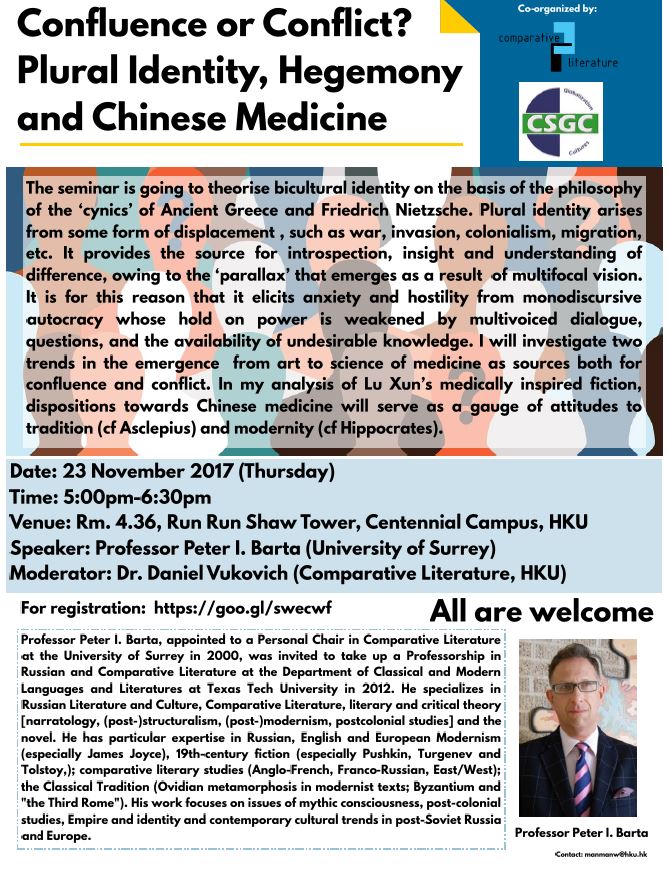Date: 23 November 2017 (Thursday)
Time: 5:00pm-6:30pm
Venue: Rm. 4.36, Run Run Shaw Tower, Centennial Campus, HKU
Speaker: Professor Peter I. Barta (University of Surrey; Texas Tech University )
Moderator: Dr. Daniel Vukovich (Comparative Literature, HKU)
The seminar is going to theorise bicultural identity on the basis of the philosophy of the ‘cynics’ of Ancient Greece and Friedrich Nietzsche. Plural identity arises from some form of displacement , such as war, invasion, colonialism, migration, etc. It provides the source for introspection, insight and understanding of difference, owing to the ‘parallax’ that emerges as a result of multifocal vision. It is for this reason that it elicits anxiety and hostility from monodiscursive autocracy whose hold on power is weakened by multivoiced dialogue, questions, and the availability of undesirable knowledge. I will investigate two trends in the emergence from art to science of medicine as sources both for confluence and conflict. In my analysis of Lu Xun’s medically inspired fiction, dispositions towards Chinese medicine will serve as a gauge of attitudes to tradition (cf Asclepius) and modernity (cf Hippocrates).
Professor Peter I. Barta, appointed to a Personal Chair in Comparative Literature at the University of Surrey in 2000, was invited to take up a Professorship in Russian and Comparative Literature at the Department of Classical and Modern Languages and Literatures at Texas Tech University in 2012. He specializes in Russian Literature and Culture, Comparative Literature, literary and critical theory [narratology, (post-)structuralism, (post-)modernism, postcolonial studies] and the novel. He has particular expertise in Russian, English and European Modernism (especially James Joyce), 19th-century fiction (especially Pushkin, Turgenev and Tolstoy,); comparative literary studies (Anglo-French, Franco-Russian, East/West); the Classical Tradition (Ovidian metamorphosis in modernist texts; Byzantium and “the Third Rome”). His work focuses on issues of mythic consciousness, post-colonial studies, Empire and identity and contemporary cultural trends in post-Soviet Russia and Europe.

All are welcome
Co-organized by:
Center for the Study of Globalization and Cultures (CSGC)
Department of Comparative Literature, HKU